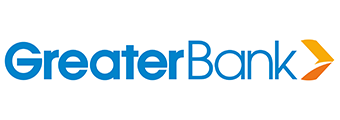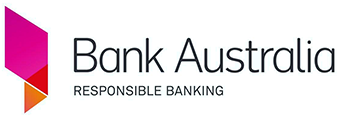Car loan comparison
You can use our free car loan comparison tables to compare car loan products from reputable Australian lenders and banks. Our free resources are available to help you learn about selecting a car loan, from choosing the type of loan to comparing interest rates and added features. Compare rates and save on your car loan with comparecarfinance.com.au.
Lender | |||||||||||||
|---|---|---|---|---|---|---|---|---|---|---|---|---|---|
| Fixed | New | 99 years | N/A | More details | |||||||||
New Car Loan (Fixed) (3 Years) | |||||||||||||
| Fixed | New | 99 years | N/A | More details | |||||||||
New Car Loan (3 Years) | |||||||||||||
| Fixed | New, Used | 99 years | N/A | More details | |||||||||
Car Loan (3 Years) | |||||||||||||
| Fixed | New | 99 years | N/A | More details | |||||||||
Secured Fixed Personal Loan (new asset) (3 Years) | |||||||||||||
| Fixed | New, Used | 99 years | N/A | More details | |||||||||
Secured Loan (3 Years) | |||||||||||||
| Fixed | New | 99 years | N/A | More details | |||||||||
Fixed Rate Car Loan (<5 years) (3 Years) | |||||||||||||
| Fixed | Used | 99 years | N/A | More details | |||||||||
Fixed Rate Car Loan (Used) (3 Years) | |||||||||||||
| Fixed | New, Used | 99 years | N/A | More details | |||||||||
Secured Fixed Car Loan (3 Years) | |||||||||||||

- Available for purchasing new and demo vehicles
- $5,000 to $150,000 loan amount
- Redraw facility available up to $5000/day
- Required: Good credit history, stable employment history. Aus citizenship or PR.
All products with a link to a product provider’s website have a commercial marketing relationship between us and these providers. These products may appear prominently and first within the search tables regardless of their attributes and may include products marked as promoted, featured or sponsored. The link to a product provider’s website will allow you to get more information or apply for the product. By de-selecting “Show online partners only” additional non-commercialised products may be displayed and re-sorted at the top of the table. For more information on how we’ve selected these “Sponsored”, “Featured” and “Promoted” products, the products we compare, how we make money, and other important information about our service, please click here.
The comparison rates in this table are based on a loan of $30,000 and a term of 5 years unless indicated otherwise. The comparison rates for car loans and secured personal loans for the relevant amounts and terms are for secured loans unless indicated otherwise. The comparison rates for unsecured personal loans are applicable for unsecured loans only.
WARNING: This comparison rate applies only to the example or examples given. Different amounts and terms will result in different comparison rates. Costs such as redraw fees or early repayment fees, and cost savings such as fee waivers, are not included in the comparison rate but may influence the cost of the loan. Comparison rates are not calculated for revolving credit products.
Monthly repayment figures are estimates only, exclude fees and are based on the advertised rate for the term and for the loan amount entered. Actual repayments will depend on your individual circumstances and interest rate changes. Rates correct as of July 10, 2025. View disclaimer.
Powered by:
 Savings.com.au
Savings.com.au
Savings.com.au Pty Ltd ACN 161 358 363 | Australian Financial Services Licence and Australian Credit Licence 515843
What to look for when comparing car finance
Car loans are a great option to consider to help you buy a car. You will be able to purchase a car sooner, and won’t need to pay out of pocket or take time saving enough money.
When you buy a car, it’s important to understand the total cost including the interest you will pay, and any fees you may occur. Here are some handy things to check when comparing different car finance options to find a loan suitable for you.
Interest Rate
The interest rate is typically the first thing that many of us look at when comparing car loans. Interest rates can impact your regular repayment amount and overall amount you pay back over the life of the loan.
There are two types of interest rates interest rate options available for car loans - variable and fixed. A variable rate loan means your interest rate is likely to change according to the RBA and your lender’s funding costs which will impact your regular repayments.
On the other hand, a fixed rate loan will remain unchanged during its fixed rate term, regardless of any rate changes in the RBA or your lender.
Comparison rate
One of the most important things to look out for is the comparison rate which is slightly different from the standard interest rate. The comparison rate shows the true cost of a loan, including both the interest rate and any fees and charges the loan incurs.
Looking at the comparison rate gives you a more accurate representation of the cost of the loan, which can be very helpful when comparing different car finance rates.
Loan term
The loan term of a car loan is usually offered between 1 to 7 years. A longer loan term can give you the benefit of cheaper repayments but the overall loan amount will be higher as you will be paying interest on your loan for a longer period of time.
If you opt for a shorter loan term, you can expect to make higher regular repayments compared to a longer loan term, but the overall loan amount will be lower because you will be paying it off in a shorter amount of time.
How much you can borrow
Determining your borrowing power will depend on factors such as how much you earn, your monthly expenses, and your credit rating. The lender that finances your car will want to ensure you can make the repayments on your new loan without any troubles.
Minimum repayments
You can use our car loan repayment calculator to easily get an idea of what your car loan repayments would look like. You can enter the interest rate, loan term, and loan amount to give you a rough estimate of what your regular repayments might be.
Balloon payment
If you want to have a smaller loan repayment, a balloon payment can be a great option. This will give you a more affordable repayment because you will pay a lump sum amount at the end of the loan term. The lump sum is usually around 30-50% of the borrowed amount.
Car loan fees
Different lenders will each have different fees and charges, and you should keep these in mind when comparing your car finance options. These can include:
- Establishment fee: charged by the lender for processing a new car loan
- Monthly ongoing fee:the cost of managing your account every month
- Break fee: a fee charged for paying off the loan before the loan term ends
- Late payment fee: additional charge if you make late repayments
These fees are included in the calculations of comparison rates. If the comparison rate is higher than the lender’s advertised rate, this can indicate that the loan has high fees.
Additional costs
The cost of buying a new or used car doesn’t end with loan repayments. Here are some of the additional costs of buying and owning a car in Australia:
- Insurance: Having Compulsory Third Party (CTP) Insurance is required in Australia to cover for any liability or damage costs to other people. You will need to get CTP insurance before you can register your new or used car.
- Stamp Duty: This is a tax levied by state and territory governments for new vehicle registration or transferring of its new ownership. You will need to pay for this whether you buy a new or used car. To check the amount of your stamp duty, you can visit your local government’s website.
- Registration: Your car will need to be registered with your state or territory’s Department of Transport. Usually, you will need to process this yourself if you are buying from a private seller.
- Fuel: Probably one of the most regular cost you will pay for owning a car is fuel. In 2021, the average weekly cost of fuel in Australia was $117, according to Compare the Market.
.
- Maintenance: The cost of maintenance will vary greatly because there are many issues that can happen. You may need to do regular maintenance to keep your car in tip-top shape. AAA found that on average, a car owner spends about $1,536 per year for car maintenance.
- Tolls:If you’re a city driver and choose to take toll roads, you will need to factor in the toll fee.
How to qualify for car finance
There is eligibility criteria to qualify for car finance. Basic criteria includes being 18 years old or above, living in Australia as a permanent resident and be employed or earning a regular income.
Your credit score can also impact your eligibility for a car loan. A credit score is a representation of your behaviour as a borrower. The score is based on your past financial credit history. This is used by lenders to measure how reliable you are as a borrower, and how capable you are to pay back a loan.
Generally, a higher credit score can give you a greater chance of getting approved for a car loan and can potentially help you secure a lower interest rate. To find out what your credit score is, you can visit Australia’s major credit providers such as Eperiam, Equifax, or Illion.
A good credit score to buy a car, if the credit report has a scale of 0-1000 is above 500. If the score is above 650 it is considered to be excellent. If the credit report has a scale of 0-1200, then 650 is considered to be a good rating.
To improve your credit score, you can start by paying off your loans and bills on time, paying off unpaid debts, reducing the amount of credit applications or enquiries you make and lowering your credit limit.
How to apply for car finance
What you will need
There are a set of documents you will need to prepare before applying for a car loan, including:
- Personal Information: This includes your full name, age, date of birth, citizenship information, and a list of dependents.
- Personal identification: This can be your drivers’ license, passport, or Medicare card.
- Payslips: You will need to provide a proof of income. Usually lenders will require two to three months of recent payslips. If you are self-employed, two years of tax returns is required.
- Assets and liabilities: This will include any income-generating assets like properties, a summary of your share portfolio, and superannuation. Liabilities can include current loans, your ongoing expenses, and credit card debts.
Applying online, over the phone, or in person
There are multiple ways you can apply for a car loan. Depending on the lender, you may be able to apply online, via phone or in person.
If you’re not comfortable to complete forms online, an in-person application with a bank may be the most suitable option.
Applying for a car loan over the phone or online may be the more convenient and hassle-free than doing it in-person. Many lenders can provide online pre-approval applications, which lets you know how much you can afford when you are buying a new or used car.
What are the different car finance options
There are a myriad of different car finance options that can be suitable to your unique financial situation as well as the type of vehicle you are planning to get.
Fixed rate
A fixed rate car loan will have the same rate for the duration of the loan term, which means your regular repayments will stay the same. This means if your lender either increases or decreases their rates due to market changes, or lending cost changes, your interest rate will remain unaffected, providing you with peace of mind with repayment security.
Variable car loan
A variable car loan’s interest rate may fluctuate when there are changes in the market. The upside is that you are able to take advantage of decreased repayments if the rate drops, helping you save money. A variable car loan is generally more flexible compared to a fixed car loan, with many variable car loans allowing redraw.
Secured car loan
With a secured car loan, the car lender will take the car as collateral against the loan, for security. If you are unable to repay the loan, the lender can repossess the car and sell it to recoup lost money. A secured car loan usually has a lower interest rate since this makes the car loan less risky to the lender.
Unsecured car loan
Unsecured car loans don't have any collateral attached to the loan and are usually given to borrowers that have an excellent credit score. Unsecured loans are more common for home repairs and upgrades, since there are nothing can be used as collateral. However, there are still some car lenders that can offer unsecured car loans.
Chattel mortgage
A chattel mortgage is a secured loan generally used by business owners. For instance, if you need a ute to transfer equipment for your business, a chattel mortgage may be a great option to consider.
Novated lease
A novated lease is provided by the company or business as an employee benefit. The repayments are made by deducting it from the employee’s salary. The car is not owned by the employer or a leasing company.
Car lease
A car lease is where the car is owned by the car financier, so neither the business nor the individual owns the car. The financier leases the vehicle for a period of time with fixed monthly instalments. At the end of the lease term, the borrower can buy the vehicle by paying the residual value. It is also possible to lease the car again.
New car loan
New car loans are generally available for cars that are less than 5 years old.
Used car loan
Used car loans are available for older cars, generally up to 12 years of age. A pre-owned car or secondhand car can be considered as a used car.
Green car loan
Many lenders offer lower interest rates for going green. To qualify for a green car loan, the vehicle must be an electric car or a hybrid car.
Financing a new car
How does it work?
There are a many ways you can finance a new car. You can use your savings account, opt for a novated lease, redraw on your home loan or get a personal or car loan.
Whether you’re financing for a new or used car, a car loan is the most common option. A car loan lender will let you borrow money to buy a car, and you will be required to pay back the money weekly, fortnightly or monthly over an agreed term with an interest rate.
You can use a car loan calculator to find out how much your repayments may be as well as the overall amount you will end up paying back over the life of your loan.
Finance from a dealer vs a lender
Here are the pros and cons of getting car finance from a dealer vs a lender:
Pros of car finance from a dealer:
- Obtaining car finance from a dealer is a quick way to buy a car. You can go to your nearest dealer to buy a car, and they can provide and process the loan and work on the paperwork, so you can easily drive away with your new vehicle the same day.
- Car dealers can offer a low interest rate, sometimes as little as 1%.
- You may negotiate the price of the vehicle directly from them.
Cons of car finance from a dealer
- Car dealers may charge a very low interest rate, meaning the sale price of the vehicle might be higher. Some dealers might even charge additional fees, such as establishment or dealer agency fees, that can drive up the loan amount. This makes it very important to look at the comparison rate on a dealer loan.
- You may be required to make a balloon payment, where you will pay a lump sum amount at the end of the loan term.
- It is usually restricted to new vehicles only, so you may need to borrow more since new cars are typically more expensive.
Pros of car finance from a lender
- With finance from a lender, you will usually be accepted for a loan no matter if you buy a new, used, or green car. You can also purchase cars from car dealers, private sellers or at an auction.
- With finance from a lender, you will usually be accepted for a loan no matter if you buy a new, used, or green car. You can also purchase cars from car dealers, private sellers or at an auction.
- You can shop around for different car loan lenders as opposed to a car dealer where they only offer finance through one company.
Cons of car finance from a lender
- Lenders tend to be less convenient compared to getting finance from a dealer. You will need to arrange your own paperworks, and wait to receive approval before purchasing your car.
- Car lenders will give you the final and best interest rate they can offer.
- You won’t be able to negotiate the interest rate on your loan.
Financing a used or secondhand car
How does it work?
A used car loan is used when you are buying a used or secondhand car. Similar to a new car loan, a lender will allow you to borrow money with interest rate which you will need to repay over a set period of time.
The main difference between new and used car loans is that a used car loan is specially designed for older vehicles. A car is considered to be ‘used’ when the vehicle has been previously registered by another person.
Sourcing finance
You can source to finance your used car from a bank or lender and will usually finance used cars up to 12 years old. Similar to a new car loan, you can also choose between a fixed or variable rate and secured and unsecured loan.
How do I organise my own finance when I purchase from a dealership?
You can get a car loan pre-approval before going to a car dealership. Getting pre-approved can make the car buying process a lot quicker because you’ll already know borrowing capacity.
You can get pre-approval online from lenders where they will assess your assets and liabilities, as well as your credit score.
You may be able to negotiate with the dealer on the car price, and there is less possibility of getting a dodgy deal. Having a budget already in mind can make car shopping a lot easier.
Checklist for before you buy a car
If you’re considering buying a car, here’s are the first few things you should do:
- Know your budget:There are many different costs involved with buying a car, so you’ll need to factor in stamp duty, insurance, fuel, maintenance, and so much more. It’s imperative that you understand how much you can afford, and how much you can realistically pay each month as a loan repayment if you opt for car finance.
- Get pre-approval:This can give you more confidence when you go car shopping since you already know how much your limit is.
- Search for make and model:Figure out what kind of car will be suitable to your lifestyle and needs.
- Request information: If you’re buying a used car, you should ask about the vehicle’s history such as how long the previous owner had the car for, the service history and if the car has been involved in any accidents.
Buying a car checklist
If you already have a specific car in mind, and you know where you can buy a car, here are some useful tips during the purchasing process:
- Inspect the car:Check if there are any red flags. Pay attention to it the electronics, lights, aircon, and audio are functioning well. Check the condition of the tires, paint and windows, as well as under the car to see if there are any signs of corrosion or other damage.
- Test drive:Check if the car drives smoothly, if the brakes are work and there’s no irregular noise from the engine.
- Negotiate:If you’re buying from a private seller or from a dealer, it’s worth negotiating on the price. If you don’t feel comfortable doing this, you can try going to a car broker where they can source out the car you want on your budget.
What to do after you buy a car
Before you drive away with your new vehicle, here are important things you should keep in mind:
- Get the paperwork: Make sure that the transfer of ownership is in process if you’re buying a second hand car. You should also get the receipt of sale to confirm your purchase.
- Insure you car: It’s compulsory to have CTP insurance in Australia. This covers compensation for people injured in an accident, as well as any damages to someone else’s vehicle.
FAQs
If you’re buying a car from a private seller, you can still get finance by applying for a car loan. It’s also possible to get a personal loan to purchase a car.
You can find out the lowest interest rate by using a comparison site. There are car loans rates from lenders in Australia starting as low as 2.85%
The average car loan rate in Australia is between 5% to 17%. A lower interest rate car loan will result in a lower repayment and lower total loan amount.
Your borrowing power will depend on your income and expenses. Lenders will want to see if you have the capacity to service the loan. You can use a borrowing calculator to find out your borrowing capacity when buying a car.
It’s best to do your research before the negotiation, and know the average price of the vehicle. You may want to consider buying a car at end of the financial year, since dealers will want to hit target sales before the financial year ends so you may get a cheaper car.
To secure a low interest rate, it’s best to improve your credit score. You can do this by paying your loans and bills on time, limiting new credit applications, and lowering your debt.
Car dealers may offer low interest rates to attract buyers, but a very low rate may come with additional upfront and ongoing fees. Obtaining finance from a car loan lender can be a good option for finance to secure low rates with affordable fees.







